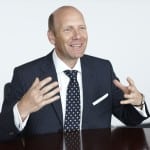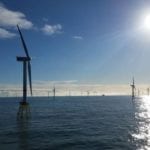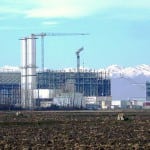Persistently low prices on the wholesale electricity market are forcing RWE—the third-largest electricity provider in Europe, serving 16 million customers—to consider dismantling some gas-fired power plants and shipping them abroad, Dr. Rolf Martin Schmitz, RWE’s COO, told Reuters in an interview.
The German-based company has been struggling for awhile. In August 2014, RWE announced that it would shutter some plants and terminate supply contracts due to sustaining substantial earnings shortfalls. That was only a year after it announced it would remove 3.1 GW of generation from service in Germany and the Netherlands due to the solar power boom. RWE is not the only German power company facing difficulty.
E.ON announced recently that it is unloading its Italian coal and gas generation assets and said late last year that it had agreed to sell its Spanish and Portuguese businesses. The moves are at least partly in response to dramatically altered global energy markets.
Vattenfall—another of Europe’s largest electricity generators based in Sweden but with operations in Germany—announced in October that it would investigate ownership options for its German lignite mining and generation activities. More recently, Vattenfall announced that it would modify its organizational structure. Effective April 1, the company will be organized into six new business areas: Heat, Wind, Customers & Solutions, Distribution, Generation, and Markets.
“Vattenfall operates in a challenging market environment, where cost efficiency and sustainability is a must for every successful actor. To focus our efforts it is imperative to make choices going forward. The first step is to lay out our general strategic direction, and to me some things are obvious: we must defend our position as a European company, we should develop our offerings for customers to become sustainable, and we will be an electricity producer that concentrates on emission-free or emission-efficient solutions,” Magnus Hall, president and CEO of Vattenfall, said in a press release.
E.ON is taking an even more extreme approach. The company intends to spin off its power generation, global energy trading, and exploration and production businesses into a new, independent company, while embarking on a new corporate strategy focused on renewables, distribution networks, and customer solutions.
Last summer, RWE Head of Group Strategy & Corporate Development Thomas Birr spoke with POWER contributor Bentham Paulos about the company’s challenges at the time and strategy changes being implemented. Since then, the company has taken steps to improve its financial strength.
In November, RWE noted that the group’s headcount was down 7% from the end of 2013 and that capital expenditures were down 10% from the previous year. Last week RWE announced that it would sell RWE DEA, its oil and gas exploration and production company, for €5 billion to LetterOne Group, a privately owned Luxembourg-based global investment company. More changes could follow. In an interview with Bloomberg, RWE CFO Dr. Bernhard Günther said the company hasn’t ruled out an E.ON-style breakup.
—Aaron Larson, associate editor (@AaronL_Power, @POWERmagazine)










